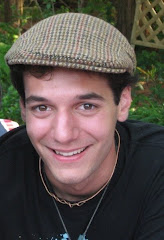Kant promoted in his first major philosophical work, Critique of Pure Reason, that anything that could not be seen or touched could not be considered truth. According to Kant, truth was something that came pre-organized in the human mind. On this issue, he directly opposed Hume and Locke, who saw the human mind as an empty chasm waiting to acquire enough experiences to begin formulating knowledge. The implications of his position were that it left no room for religion. As far as Kant was concerned, religion was suitable for sensory expeditions, and even provided insight and explanations for human condition, but was incapable of achieving reliability. Essentially, religion was a mode of understanding, not a path to absolute knowledge.
Through this writing, he hoped to analyze and refute the popular notion that all knowledge comes from experience, and show how human experiences and instincts differed in the production of knowledge. In order to do this, he made a case that absolute certainty of knowledge is impossible if all knowledge comes from sensation. In his mind, as he later stated, he was rescuing God from skeptics trying to force the notion of God into the boundaries of reason, but according to his contemporaries he had destroyed the case for God, because an immortal soul and a good God could never actually be proven by reason. He effectively made the situation he was attempting to rectify even worse.
This led to his second major piece of philosophical writing entitle The Critique of Practical Reason. He retraced his steps and claimed that morality was inherent, we are immortal, and thus, there must be a God. He advocated that “Since religion must be based not on the logic of theoretical reason, but on the practical reason of the moral sense, it follows that any Bible or revelation must be judged by its value of morality, and cannot itself be considered the judge of a moral code.”
It is amusing how difficult it becomes to understand the concept of an omnipotent God through the resources of human logic. Kant’s search for truth is similar to the servant who demands that his master travel to his house to issue him the master’s orders.
Subscribe to:
Post Comments (Atom)





No comments:
Post a Comment